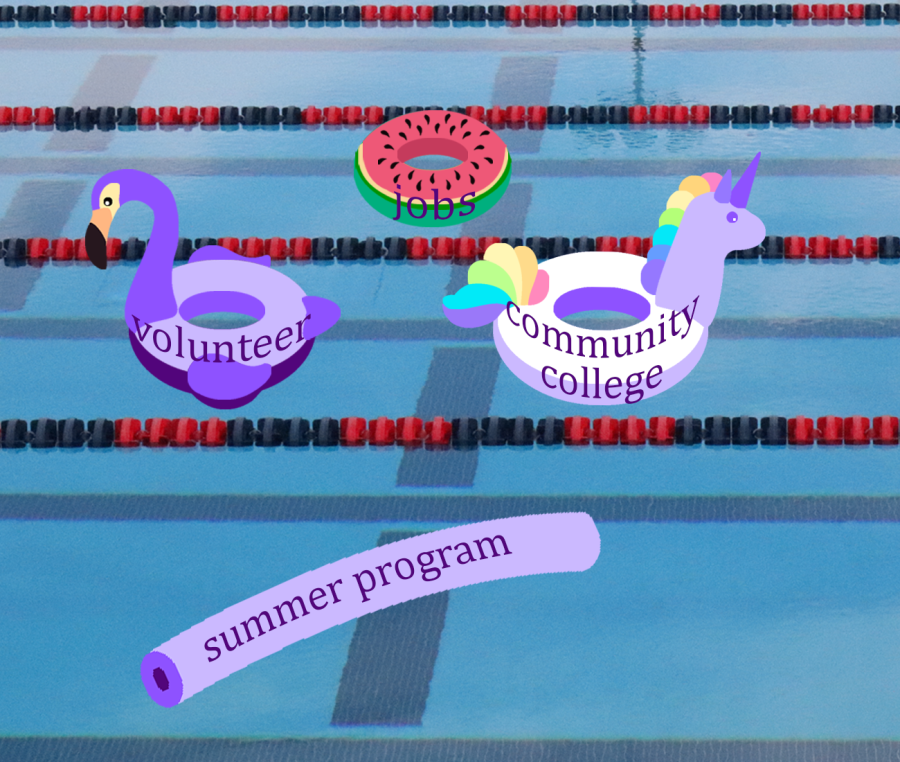Don’t waste summer on chasing prestige
Graphic illustration by Lauren Liu
In the summer, students should participate in activities that they actually care about and be open-minded about nontraditional opportunities.
March 8, 2022
This time of year, underclassmen are already applying to one summer program after another. Many prioritize resume boosting, leading to missed opportunities to gain fulfilling experiences. Instead, students should participate in activities that they actually care about and be open-minded about nontraditional opportunities.
Most of the time, colleges don’t care much about what students do, but instead value personal growth and passion showcased in their activities. Thus, students should apply to summer programs that they are genuinely interested in. Students can only make the most of their summer activities when they truly care about them, which also helps them demonstrate their passion. Lynbrook students often experience peer pressure to apply to summer STEM programs, like COSMOS, but everyone’s interests differ and a program where one may thrive can also be one that another doesn’t enjoy.
“The goal of any summer activity should be for the student to gain experiences in the areas that interest them,” college and career adviser Barbara Takahashi said. “It’s important for students to do things that matter so they can mature, experience responsibility, meet new people and become better at things they already do or want to learn about.”
Although selective and prestigious summer programs provide unique opportunities, cheaper programs can oftentimes offer the same experiences. In addition, many prestigious summer programs are virtual due to COVID-19, and their high prices are not worth the cost.
“An expensive program is not necessarily worth the time and money if it’s not something that you care about,” Takahashi said. “Colleges and university admissions consider most of these programs as pay-to-play opportunities that demonstrate privilege, and possibly a lack of creativity for figuring out what to do with your time.”
Alternatively, students can attend community college courses or volunteer, which are cheaper summer activities that show colleges curiosity, a willingness to learn and dedication to the community. Students can also create opportunities for themselves by starting businesses, starting their own research projects or self-learning academic and non-traditional subjects. Summer is also a good time for students to relax or spend time with family.
“Ideally, if there wasn’t the pressure to attend prestigious summer programs, I would want to relax, have fun and go on vacation,” freshman Lilly Wu said. “There should be a good balance. My goal is to use half of my summer for more educational purposes and use the other half to relax.”
Jobs and internships, which help students gain insight on what work in different fields is like, are also beneficial life experiences that can be showcased in college essays. In addition, jobs allow students to learn financial literacy and demonstrate leadership, responsibility and time management.
“I learned how to do CPR, the heimlich and other life saving skills,” said junior Samantha Leong, who worked as a lifeguard at Great America over the summer. “I also did some customer service, so I got to meet some people I wouldn’t normally interact with, so it was a fun experience.”
Students should consider their interests, budget and schedule when planning for their summer. Finding a meaningful summer activity not only allows students to find their desired college major and meaningful stories to write about in college applications, but also feel fulfilled, knowing that their time, money and efforts were put toward the right cause.




























































